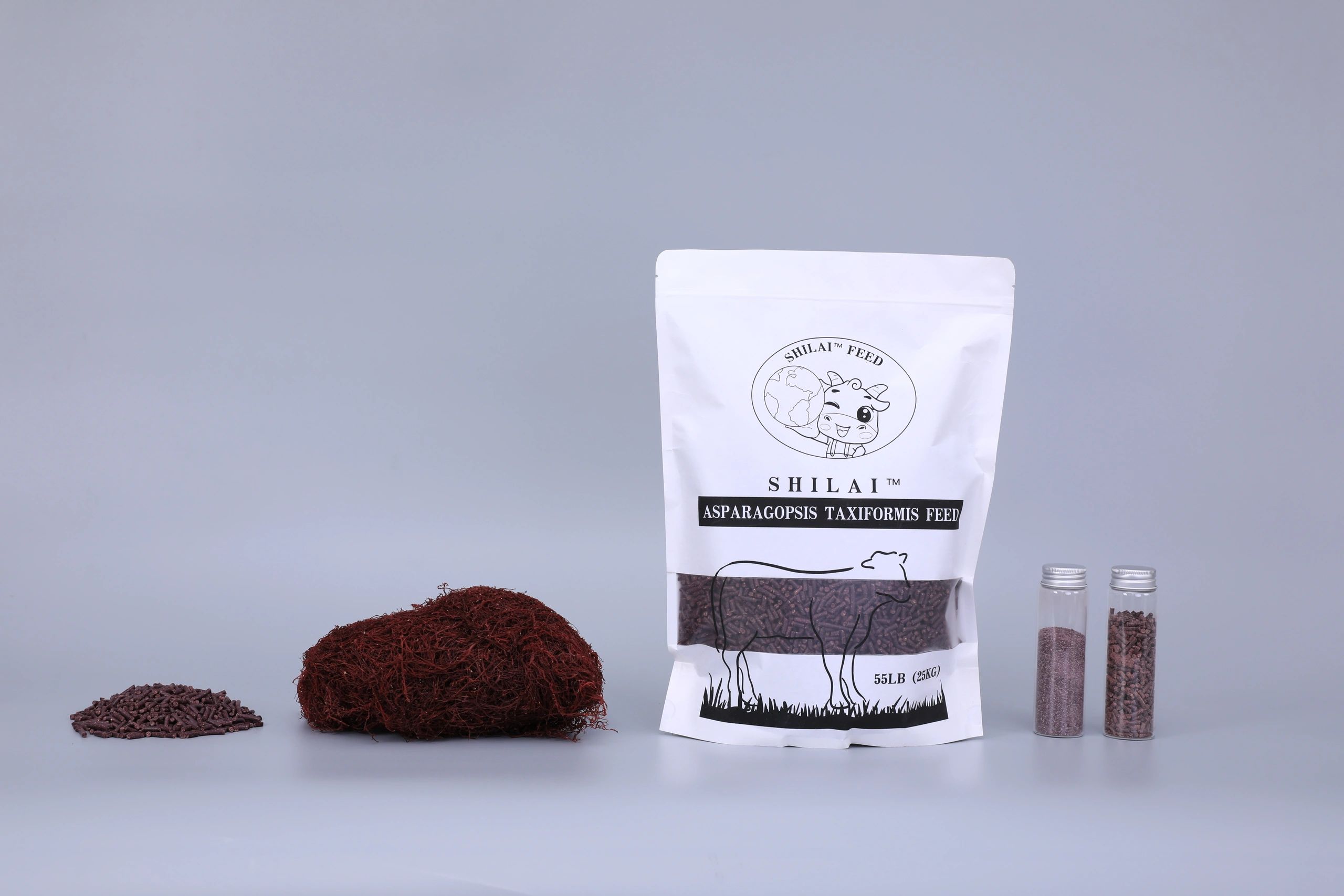The agriculture sector worldwide produces a notable share of greenhouse gases, mainly attributable to livestock production.
Methane exerts a stronger warming influence than carbon dioxide, making reductions in methane critical for near-term climate action.
A red seaweed called Asparagopsis taxiformis has surfaced as a potential game-changing tool to lower methane produced by grazing animals.
A unique chemical in the seaweed interferes with rumen methanogens, resulting in measurable decreases in methane production.
Blending Asparagopsis taxiformis into animal feeds has shown positive findings in pilot studies that indicate a feasible way to lower emissions from livestock.
- Asparagopsis taxiformis also contributes extra advantages that can support sustainable farming transitions.
- Better feed efficiency
- Opportunities to develop sustainable aquaculture-driven industries
Further investigation and trials are still needed, yet Asparagopsis taxiformis shows major promise as a sustainable emissions reducer.
Activating the Potential of Asparagopsis taxiformis Powder in Feed Formulations
Using Asparagopsis taxiformis in powdered concentrate form could markedly improve feed solutions for livestock.
Its profile of nutrients and active substances has the potential to raise livestock productivity and health.
Incorporating A. taxiformis powder into feed blends has been shown to reduce methane emissions in trials while also supplying key micronutrients.
Deeper investigation is necessary to establish best practices for dosing, feed processing, and long-term animal health outcomes.
Asparagopsis taxiformis: Driving New Models of Sustainable Livestock Production
Asparagopsis taxiformis is drawing recognition for its ability to help resolve the environmental impacts of standard animal farming.
Adoption of the algae in feed could enable measurable reductions in methane and a smaller ecological footprint for farms.
Research suggests the seaweed can additionally support better animal health and production performance under certain conditions.
Large-scale implementation and chronic impact assessment remain to be proven, yet preliminary results are highly encouraging.
Asparagopsis as a Dietary Strategy to Lower Methane
Research highlights Asparagopsis as a potential, effective way to minimize methane from ruminant animals.
The observed reductions are due to bioactives in the seaweed that disrupt the methanogenic microbes in the rumen.
- Research trials have demonstrated that Asparagopsis can reduce methane by substantial percentages in controlled studies.
- Incorporating Asparagopsis into rations is an environmentally sound method for methane abatement.
- Farmers and producers are increasingly exploring the adoption of Asparagopsis in feeding programs.
Asparagopsis: The Seaweed Transforming Livestock Production
From ocean science to farm practice, Asparagopsis taxiformis is an emerging contender for sustainable methane mitigation.
- Inclusion of the seaweed in animal feeds produced significant methane cuts in research trials with clear climate implications.
- This breakthrough could help reconcile food production with sustainability by lowering emissions while supporting nutrition needs.
Within the portfolio of climate mitigation approaches, Asparagopsis is notable for its novel potential to lower methane from animals.
Maximizing the Methane-Reduction Potential of Asparagopsis taxiformis Feed Products
Research targets include processing optimization and dosage determination to increase A. taxiformis impact on methane reduction.
The Science Behind Asparagopsis taxiformis's Methane-Lowering Effects
Research explains the effect as chemical interference with rumen methanogens, reducing methane synthesis during digestion.
Bromoform and analogous molecules in the algae are believed to block methanogenesis, and research is clarifying efficacy and safety considerations.
Blending Asparagopsis into Diets for More Sustainable Farming
The species provides a complementary mix of nutrients and bioactives that feed formulators can leverage for sustainability.
Asparagopsis integration may improve nutrient density, digestive efficiency, and deliver ancillary antimicrobial or immunomodulatory effects.
Asparagopsis taxiformis: A Natural Solution for a Greener Food System
This red alga provides a promising, nature-inspired approach to lower the environmental cost of animal-based food production.
- In addition, the seaweed contributes essential nutrients and beneficial compounds to diets.
- Researchers and industry are collaboratively exploring how Asparagopsis can be used across food and aquaculture sectors.
Bringing Asparagopsis into routine practices has the potential to reduce emissions associated with animal production.
Benefits of Asparagopsis Feed Additive on Animal Health and Productivity
The seaweed presents a promising feed additive option with potential co-benefits for emissions and animal performance.
Experimental results show enhanced nutrient utilization and feed conversion in animals fed Asparagopsis, aiding growth and condition.
Additional functional properties such as antioxidant or immunomodulatory effects have been observed that could strengthen animal health.

As the call for sustainable production grows, Asparagopsis is well positioned to play an important role as validation and scale advance.
Asparagopsis in Methane-Cut Feeds to Help Achieve Carbon Goals
In response to carbon-reduction imperatives, Asparagopsis could play a role in reducing the climate footprint of livestock farming.
- Scientists explain the effect as the algae’s compounds disrupting the microbial processes responsible for methane production in the rumen.
- Trials and experiments have produced promising results, showing substantial methane reductions when Asparagopsis is included in diets.
Beyond being a lower-emission feed choice, the approach could help reorient food production to align with climate resilience goals.
